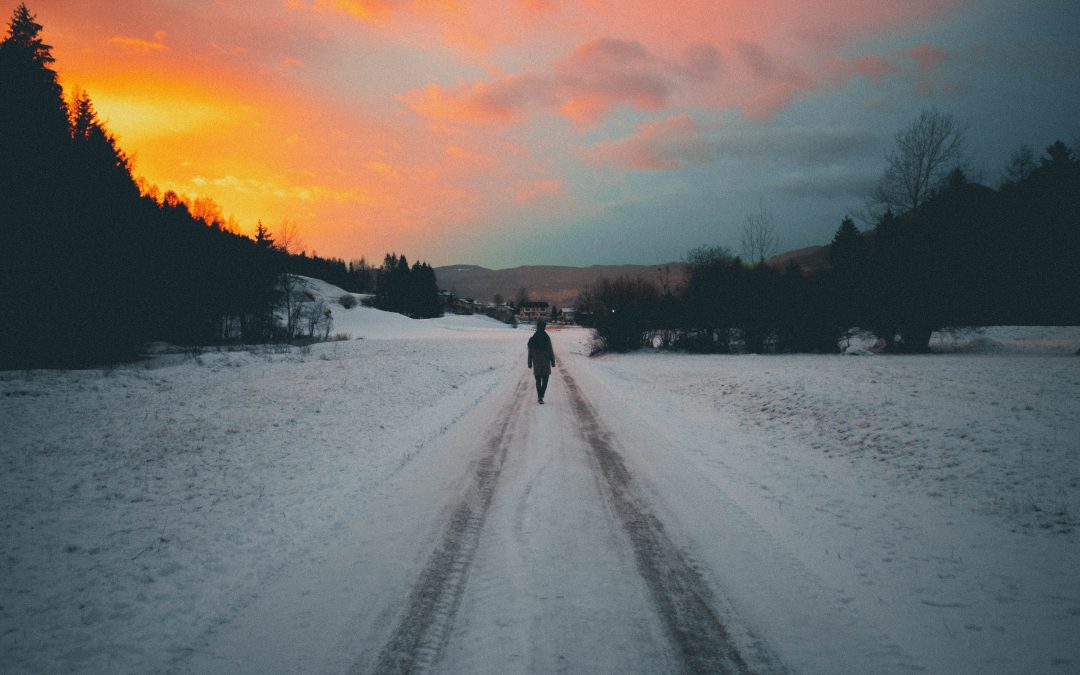When you hear the acronym SAD, you would rightly assume that it is referring to the Standard American Diet. But there is another SAD which is also important to talk about – Seasonal Affective Disorder. What is this particular SAD? Think “winter blues”. Many people notice a change in the way they feel at the start of the colder season – lethargy, weight gain, loss of libido, difficulty concentrating and even low-grade depression. Some may have a hard time getting out of bed in the morning, sleep longer, crave carbohydrates and feel less joy in everyday activities.
While SAD is common – affecting up to ten million Americans – it is most often diagnosed in women and younger people (age 18-40). This disorder can be quite dangerous for some – causing debilitating fatigue, depression or an inability to function. Often, mild symptoms at the onset of SAD can turn more severe.
A definitive cause for SAD has not been ascertained, but many experts believe that it is related to a decrease in natural light exposure – as the days get shorter, we spend less and less time exposed to natural light. An interesting related factoid is that those living farthest away from the equator where days are generally shorter have a higher incidence of SAD.
A field of chronobiology has emerged to study the effects of time on how the body functions. Nature functions in rhythms – ones that repeat in cycles tied to the sun, the moon and the earth’s rotation. A year, a lunar month and a day are examples of regular cycles in nature. Circadian rhythms, in particular, refer to the effects of a 24-hour cycle on the body. Somehow, the body knows when to go to sleep and when to wake. It knows when it needs more energy and when it’s time to wind down. For humans, research into circadian rhythms and the role they play in metabolism, immunity and hormone production is exploding. And a major factor that drives these body responses is light.
The eyes and the brain sense light or darkness and trigger a hormonal dance in the body. For example, the production of melatonin, the sleep hormone, rises in the evening as it gets darker, and wains during the day. Shorter days mean more melatonin in a 24-hour cycle. Production of serotonin, our “happy” neurotransmitter, rises when it’s light outside. So shorter days mean less serotonin in a 24-hour cycle.
What can you do if you are affected by SAD? First, seek the help of a licensed medical or mental health professional if your depression is severe, long-lasting or if you are thinking of harming yourself. Otherwise, follow the suggestions below:
- Consider the amino acid l-tryptophan – a precursor to serotonin – for natural mood support.
- Up your vitamin C intake – it’s likely that the SAD is stressing your adrenal glands which excrete extra vitamin C.
- Spend time outside as much as possible. Even if it’s cold. Exposure to natural light can normalize hormone production and provide some vitamin D. Sitting near a window can help also.
- Laugh. Laughter causes endorphins and neurotransmitters to release.
- Make an effort to move even as it gets colder. Movement and exercise have been shown to boost mood and increase energy.
- Work to minimize circadian rhythm disruption to allow the body to get back into balance. Try to sleep between 10 pm and 7 am. Turn off electronic devices at least 1 hour before bed and use blue light blocking glasses at night. Automatically set your device screens to “Night” mode. Avoid stimulating activities such as intense exercise at night. Forego watching violent or disturbing content in the evening and choose something calming and relaxing instead.
- Try my signature formula Sero Balance. It is custom formulated to rebalance stress handling and can often help with mood and sleep.
If you think you are suffering from SAD, try one of the suggestions above and seek my professional care if your symptoms don’t subside. The spring will be here before you know it!
Call us today to inquire about options for improving your mood, sleep, and stress!



